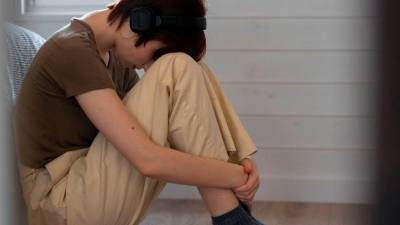TOO many adults carry a secret they never asked to hold. They were touched, molested or assaulted as children.
Some have buried it so deep they barely think of it; others live with the shame every single day. What they share is silence – a silence that protects the perpetrator, never the child.
This is a raw and difficult subject but it is one we must talk about. Because as long as it remains hidden, the damage multiplies.
Hidden realities
When people think of sexual assault, they often picture violent attacks by strangers. But the truth is far closer to home.
In majority of the cases, the perpetrator is someone the family knows and trusts: a relative, neighbour, teacher, babysitter, maid or even grandparent.
The abuse is often “subtle” – not always violent or physically painful. Sometimes it is just a hand that lingers too long, a touch framed as “play” or a confusing request to keep secrets.
Yet, these acts can leave wounds that cut deep – wounds that only reveal their true pain years later, when the child grows into adulthood and realises what really happened.
That is when shame takes over. Shame and, its equally toxic partner, self-blame.
One elderly lady said when she was in her twenties, she was molested on a long-haul flight. She froze. When she told me the story, she asked: “Why didn’t I scream? Why didn’t I stand up and walk away?”
Her question is one I hear often. Survivors don’t just carry the memory of what was done to them but also the unbearable weight of what they think they “should” have done.
The truth is, they froze – and freezing is a human survival response. It is not weakness; it is biology. Also, many children grow up never being told they have the right to say no. They are taught to keep the peace, to avoid embarrassing others, to prioritise family reputation, hence, speaking up feels impossible.
People often ask: why don’t children tell someone? Why don’t they run to their parents? The reasons are painfully clear:
They were never taught permission
If a child is not encouraged to voice discomfort, they will not magically discover the courage to do so during abuse.
They don’t know it is wrong
Many parents avoid talking about bodily boundaries. If children are not told that nobody has the right to touch them inappropriately, not even family, they cannot recognise abuse for what it is.
They freeze
Faced with fear, the body sometimes shuts down. This freeze or dissociation is instinctive.
They are threatened
Perpetrators often demand secrecy or threaten harm to the child, their loved ones or pets.
The abuse may stop as the child grows older or the perpetrator moves away but the silence does not stop; it follows the child into adulthood, where the real devastation begins.
Long shadow of shame
As survivors mature, they look back and realise: “That wasn’t affection. That wasn’t play. That was abuse.”
With that realisation comes self-blame: “Why did I let it happen? I am disgusting. I should have fought back.”
This spiral corrodes self-worth, crippling self-esteem. It even allows toleration of mistreatment in adult relationships. The child who once had no choice grows into an adult who believes they deserve the abuse. But the truth survivors need to hear is it was never their fault.
It is never too late to heal. Therapy or just talking to someone you trust helps. Saying the words out loud for the first time can be life-changing.
For parents and caregivers, it is crucial to educate your children about boundaries. Tell them their body is their own. Teach them that no one – not relatives, teachers, family or friends – has the right to touch them in ways that feel wrong. Encourage them to speak up about anything that makes them uncomfortable.
For teenagers, provide resources such as books, articles and safe spaces for conversations. Reassure them that your door is always open, whether they want to talk about something that happened long ago or something happening now.
For society as a whole, stop shying away from these conversations. Stop dismissing survivors with, “it’s in the past”.
The shame of abuse never belongs to the child. The responsibility does not rest on the adult survivor. Silence is shared by all of us and it protects the wrong people. But courage can protect the vulnerable.
If you are a survivor, know that it is never too late. If you are a parent, have the uncomfortable conversations. If you are part of the community, stop looking away. Because every time we stay silent, another child learns to stay silent too, and that silence ends in suffering.
Nahlana T. Kreshnan is a somatic psychotherapist and life and executive coach.
Comments: letters@thesundaily.com
